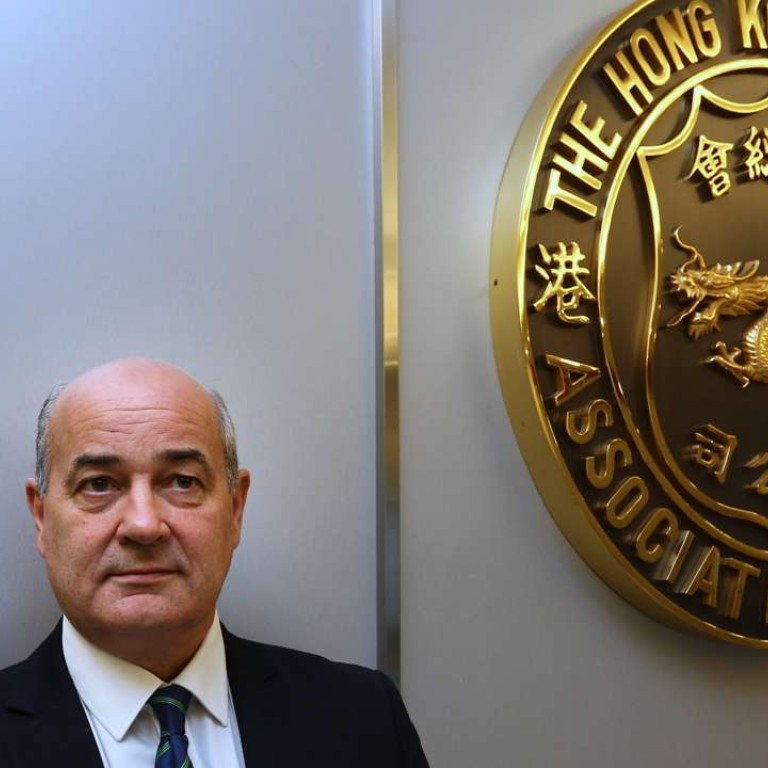
‘Borrow GB blueprint’, urges Hong Kong soccer chief Mark Sutcliffe as he calls for overhaul of city’s approach to sport
HKFA chief says sport hasn’t reached the required level of cultural importance to resonate with politicians in Hong Kong
Hong Kong has to decide if it is serious about sport and follow a successful model like Great Britain’s or continue in a fragmented and half-hearted way, leading sports administrator Mark Sutcliffe says.
In light of Team GB’s electrifying performance at the Rio Olympics – and Hong Kong’s disappointment – Sutcliffe says sport suffers because it is not that important to people, to society and therefore to politicians.

He would like to see sports commissioner Yeung Tak-keung jump on a plane to the UK today and borrow the blueprint that led to GB’s most successful Olympics ever.
Team GB won 27 gold medals and finished second to the United States (46) but ahead of China (26). More than 35 per cent of the 366-strong team returned with a medal.
Sutcliffe advocates in a blog this week on the HKFA website the need to establish a governmental agency or NGO with specific responsibility for all sport across Hong Kong, like UK Sport.

“All of the sporting stakeholders in Hong Kong must buy into the strategy in a coordinated way, particularly the education system and NSAs – most of which are significantly underfunded.”
Sutcliffe says the education system must be at the heart of any new sports strategy and Hong Kong should also learn from Singapore’s success.
“We cannot underestimate the importance of schools. The Hong Kong Sports Institute (HKSI) does a great job but often by the time the athletes go there full-time, it’s too late.
“Specialist sports schools are key, like the Singapore Sports School that helped deliver its first gold medal in swimming in Rio.

Sutcliffe acknowledged that resources and thought had been invested with the HKSI for elite athletes, new facilities such as the velodrome and more in the pipeline such as a sports park at Kai Tak.
He also said the HKFA had benefited from additional funding as a result of a more strategic approach and better governance.
“It would be churlish for me to say that there is no sporting culture at all. The reality is though that these are only strands and facets of a sporting infrastructure.

“Having witnessed firsthand the renaissance of sport in the UK, I would have to say ‘categorically no’.
Sutcliffe says it took 20 years for the transformation to happen in the UK and “it would, in all probability take longer here because we are starting from a lower base”.
“The point is that if we don’t make a start now, it will never happen. If Hong Kong is to enjoy any sustained success in sport, we must all join forces to develop a sporting culture and to devote more resources to sport.”

